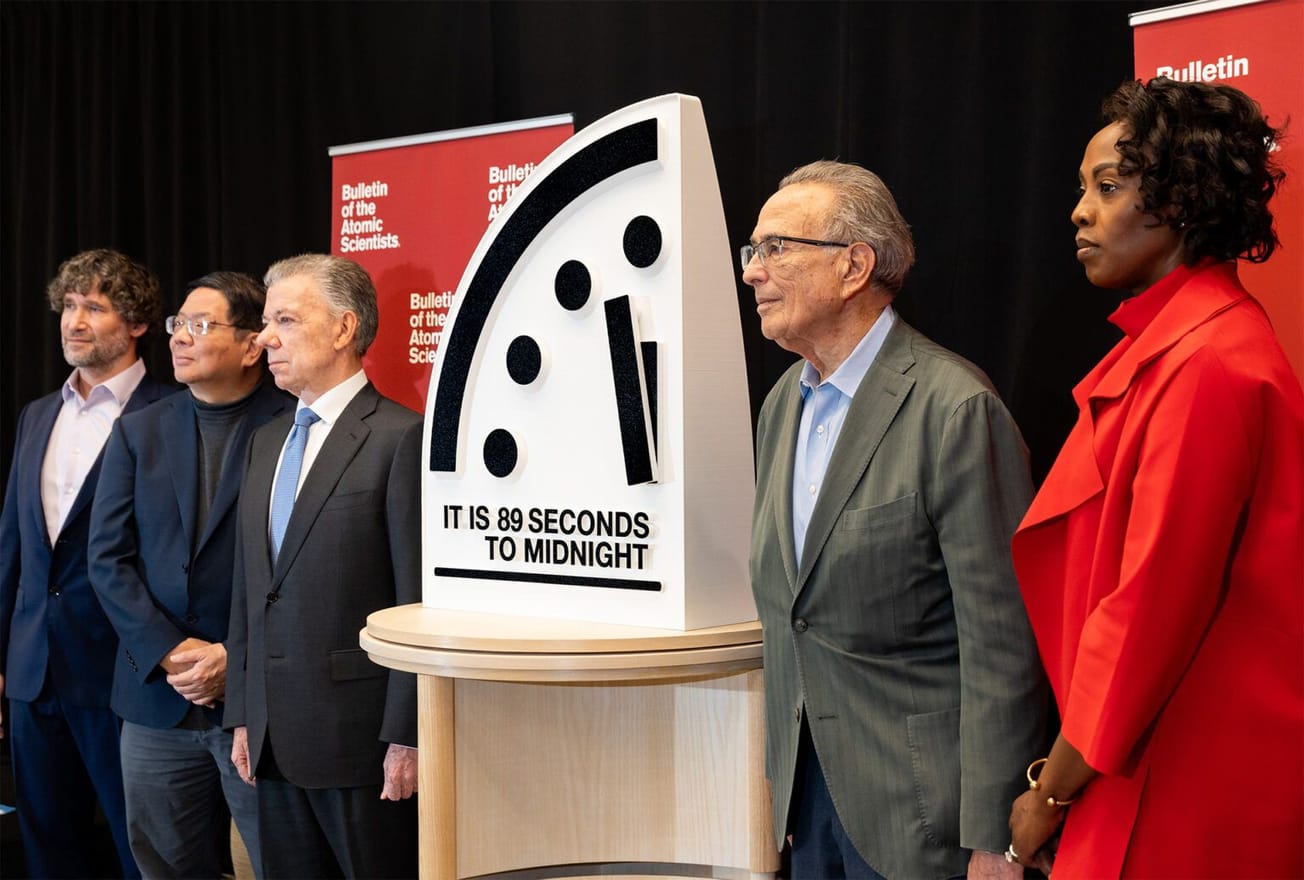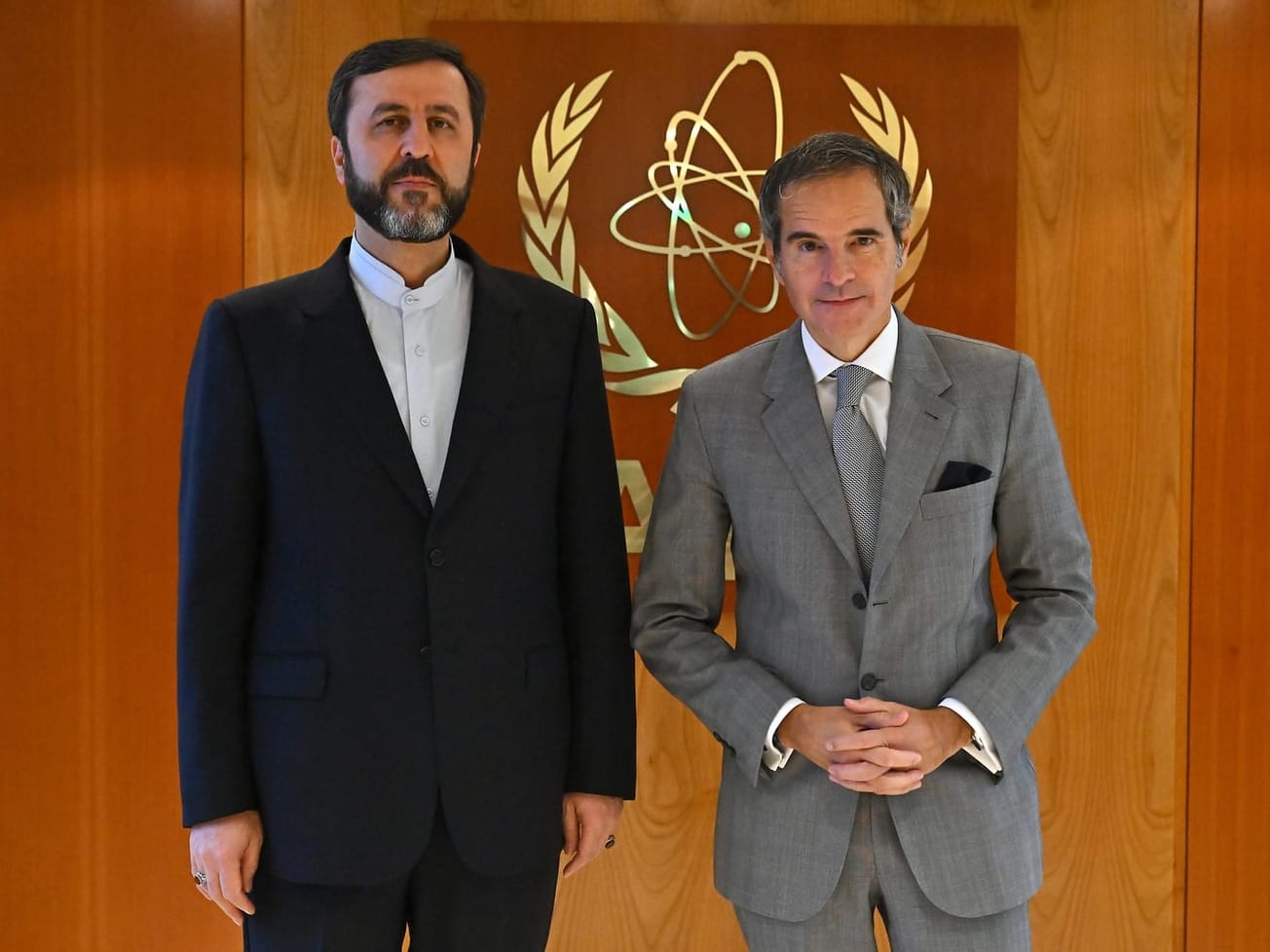High-level negotiators for the United States and Iran held a second round of nuclear talks in what the head of the U.N.'s atomic watchdog agency called "a very crucial stage" with high geopolitical stakes.
The talks picked up this weekend in Rome, U.S. and Iranian officials said, with Oman's Foreign Minister Badr al-Busaidi mediating talks as he did last weekend in Oman's capital, Muscat.
"Iran has always demonstrated, with good faith and a sense of responsibility, its commitment to diplomacy as a civilized way to resolve issues, in full respect of the high interests of the Iranian nation," Iran's Foreign Ministry spokesman Esmail Baghaei said on Saturday. "We are aware that it is not a smooth path but we take every step with open eyes, relying also on the past experiences."
Since the U.S. reneged on the nuclear deal under the first Trump administration, Iran abandoned all limits on its program and enriched uranium to up to 60% purity, approaching weapons-grade at 90%. The second Trump administration threatens to hit Iran's nuclear facilities with airstrikes if the two sides do not reach a new deal.
"I’m for stopping Iran, very simply, from having a nuclear weapon," Trump said.
On a trip to Iran this week, Rafael Mariano Grossi, director-general of the International Atomic Energy Agency, met with Iran's foreign minister, Abbas Araghchi, then with the head of the Atomic Energy Organization of Iran, Mohammad Eslami, and saw an exhibit on civilian nuclear projects.
"We know that we are in a very crucial, I would say, stage of this important negotiation, so I want to concentrate on the positive,” Grossi told Iranian media. "There is a possibility of a good outcome. Nothing is guaranteed. We need to make sure that we put all of the elements in place."
Gross said "we don't have much time" left for negotiations with Iran's nuclear program quickly advancing. IAEA carried out the verification and monitoring under the 2015 Iranian nuclear deal known as the Joint Comprehensive Plan of Action, or JCPOA, but some of its inspectors have since been barred and its surveillance cameras disrupted.
Grossi told Le Monde that Iran "has enough material to build not one but several bombs," but is still not capable of it. "It’s like a jigsaw puzzle; they’ve got the pieces and one day they might be able to put them together," he said. "There’s still a long way to go before that happens. But they’re not far off, admittedly."
Non-enrichment is a non-starter
Araghchi cautioned the U.S. to adopt a clear negotiating stance after the Trump administration's Middle East envoy, Steve Witkoff, initially suggested that a new deal would require Tehran to return to the 2015 deal's 3.67% uranium enrichment, then later said Iran eliminate its nuclear enrichment and weaponization program.
"Enrichment is a real and accepted issue, and we are ready for trust-building about possible concerns," Araghchi said, but a return to no enrichment at all "is non-negotiable."
On Saturday morning, Araghchi met with Italy's Foreign Minister Antonio Tajani before holding indirect talks with Witkoff, according to Iranian state television. In Oman, long a go-between for Iran and Western powers, Araghchi and Witkoff met in person after holding indirect talks.
The original nuclear deal, hammered out mainly during intense negotiations around Geneva during the Obama administration, allowed Iran’s economic opening to the West through sanctions relief in exchange for curbs on its nuclear ambitions.
The 15-nation U.N. Security Council unanimously endorsed the JCPOA in July 2015 with the support of its five permanent members: Britain, China, France, Russia and the United States. Iran signed the deal with the five powers, along with Germany and the European Union.
This story has been updated with additional details.









